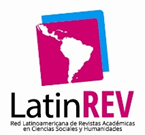Estudio del discurso pedagógico: enfoque bernsteniano clásico y revisiones actuales sobre un modelo de análisis para la investigación de la pedagogía puesta en acto
DOI:
https://doi.org/10.21703/0718-5162.v21.n45.2022.021Abstract
El modelo teórico de Basil Bernstein se refiere, principalmente, a la producción y análisis del discurso pedagógico. Es uno de los enfoques más relevantes de la sociología crítica de la educación en el siglo XX, ya que su tesis central se refiere tanto a la naturaleza como a los procesos de transmisión cultural y al papel que juega en ellos el lenguaje en los contextos de producción y reproducción como el de la educación. El discurso pedagógico se comprende como las reglas que regulan la producción, distribución y cambio del conocimiento transmitido en la escuela. Se enmarca en el desarrollo producido sobre la comprensión estructural de las desigualdades que se producen en la enseñanza escolar y que se explican por diferencias de clase social, poder y control. A través de una sistematización teórica, el siguiente trabajo desarrolla una descripción del modelo clásico sobre el discurso pedagógico, su campo de producción teórico y cómo se ha concebido en una serie de investigaciones en base a las miradas actuales del campo de producción bernsteniano y discute las posibilidades y aplicación de este marco de investigación en el campo de los estudios sobre el discurso pedagógico.
Downloads
References
Alves, V. y Morais, A. (2012). A sociological analysis of science curriculum and pedagogic practices, Pedagogies: An International Journal, 7(1), 52-71, doi: 10.1080/1554480X.2012.630511
Apple, M. (2002). Basil Bernstein's Theory of Social Class, Educational Codes and Social Control. British Journal of Sociology of Education, 23(4), 525-526. doi:10.1080/0142569022000038378
Arnot, M. (2002). The Complex Gendering of Invisible Pedagogies: social reproduction or empowerment?. British Journal of Sociology of Education, 23(4), 583-593. doi:10.1080/0142569022000038431
Arnot, M., y Reay, D. (2007). A Sociology of Pedagogic Voice: Power, inequality and pupil consultation. Discourse: Studies in the Cultural Politics of Education, 28(3), 311-325. doi:10.1080/01596300701458814
Ball, S. y Vincent, C. (2007). Education, Class Fractions and the Local Rules of Spatial Relations. Urban Studies, 44(7), 1175-1190. doi:10.1080/00420980701302312
Barrett, D. (2017). Bernstein in the urban classroom: a case study. British Journal Of Sociology Of Education, 38(8), 1258-1272. doi:10.1080/01425692.2016.1269632
Bernstein, B. (1974). Clases, códigos y control, Vol. 1. Theoretical studies towards a sociology of language. London: R.K.P.
Bernstein, B. (1977). Clases, códigos y control, Vol. 3. Londres: Routledge y Kegan Paul.
Bernstein, B. (1981). Codes, Modalities and the process of cultural reproduction: A model. Anglo American Studies, Vol. 1.
Bernstein, B. (1990a). La estructura del discurso pedagógico. Clases, código y control, vol. 4. Madrid: Morata.
Bernstein, B. (1990b). Poder, educación y conciencia. Sociología de la transmisión cultural. Barcelona: El Roure.
Bernstein, B. (2000). Vertical and horizontal discourse: an essay. British Journal of Sociology of Education, 20(2), 157-173. doi:10.1080/01425699995380
Bolander, B. & Watts, R. (2009). Re-reading and rehabilitating Basil Bernstein. Multilingua, 28(2/3), 143-173. doi:10.1515/mult.2009.008
Bourdieu, P. y Passeron, J. (1970/2008). La reproducción: Elementos para una teoría del sistema de enseñanza. Madrid: Popular.
Brook, B. y Watts, R. (2009). Re-reading and rehabilitating Basil Bernstein. Multilingua, 28(2/3), 143-173. doi:10.1515/mult.2009.008
Christie, F. y Martin, J. (1997). Genre and Institutions: Social processes in the workplace and school. London: Cassell.
Christie, F. (1999). Pedagogy and the Shaping of Consciousness: Linguistic and social processes. London: Continuum.
Cox, C. (1989). Poder, conocimiento y sistemas educacionales: introducción a las categorías de Bernstein. Temps d'Educació, 341-352.
Crompton, R. (1998). Class and Stratification. Cambridge: Polity.
Davies, B. (2001) Introduction, En A. Morais, I. Neves, B. Davies and H. Daniels (Eds) Towards a Sociology of Pedagogy: The Contribution of Basil Bernstein to Research, New York: Peter Lang.
Díaz, M (1985). Hacia una teoría del discurso pedagógico. Revista Colombiana de Educación. 15. 81-121.
Doherty, C. (2015). Understanding classroom trouble through regulative gravityand instructional elasticity. Linguistics and Education. 30, 56–65. doi:10.1016/j.linged.2015.03.009
Ensor, P. (2004). Modalities of teacher education discourse and the education of effective practitioners. Pedagogy, Culture & Society, 12(2), 217-232. doi: 10.1080/14681360400200197
Graizer, O. y Navas, A, (2011). El uso de la teoría de Basil Bernstein como metodología de investigación en didáctica y organización escolar. Revista de Educación, 356(1), 133-158.
Goldthorpe, J. H. (1996). Class analysis and the reorientation of class theory: the case of persisting differentials in educational attainment. British Journal of Sociology of Education, 481-505. doi:10.2307/591365
Hasan, R. (2005), Language, Society and Consciousness. The Collected Works of Ruqaiya Hasan, Vol. 1. London and Oakville: Equinox.
Hjelmér, C., y Rosvall, P. (2017). Does social justice count? 'Lived democracy' in mathematics classes in diverse Swedish upper secondary programmes. Journal of Curriculum Studies, 49(2), 216-234. doi:10.1080/00220272.2016.1138326
Hoadley, U. y Ensor, P. (2009). Teachers' social class, professional dispositions and pedagogic practice. Teaching & Teacher Education, 25(6), 876-886. doi:10.1016/j.tate.2009.01.014
Hoadley, U. y Muller, J. (2010). Codes, pedagogy and knowledge: advances in Bernsteinian sociology of education. En Michael Apple, Stephen Ball and Luis Armando Gandin (Eds.), The Routledge International Handbook of the Sociology of Education. (69–68). Routledge: New York.
Hoadley, U. (2008). Social class and pedagogy: a model for the investigation of pedagogic variation. British Journal of Sociology of Education, 29(1), 63-78. doi:10.1080/01425690701742861
Inghilleri, M. (2002). Britton and bernstein on vygotsky: divergent views on mind and language in the pedagogic context. Pedagogy, Culture & Society, 10(3), 467-482. doi:10.1080/14681360200200154
Ivinson, G., y Duveen, G. (2005). Classroom structuration and the development of social representations of the curriculum. British Journal of Sociology of Education, 26(5), 627-642. doi:10.1080/01425690500293603
Jacklin, H. (2004). Discourse, interaction and spatial rhythms: locating pedagogic practice in a material world. Pedagogy, Culture & Society, 12(3), 373-398. doi: 10.1080/14681360400200208
Leaton, S. (2017). The social construction of time in contemporary education: implications for technology, equality and Bernstein’s ‘conditions for democracy’. British Journal of Sociology Of Education, 38(1), 60-71. doi:10.1080/01425692.2016.1234366
Lee, T. (2018). Revisiting the role of pedagogic contexts in social class analysis: a Bernsteinian approach. International Review of Sociology, 28(1), 133-149. doi:10.1080/03906701.2017.1411310
Lee, T. T., & Chiu, S. W. (2018). Conduit for engagement? School curriculum and youth political participation in Hong Kong. YOUNG, 26(2), 161–178.
Lim, L., y W. Apple, M. (2015). Elite rationalities and curricular form: “Meritorious” class reproduction in the elite thinking curriculum in Singapore. Curriculum Inquiry, 45(5), 472-490. doi:10.1080/03626784.2015.1095622
Loo, S. (2007). Theories of Bernstein and Shulman: their relevance to teacher training courses in England using adult numeracy courses as an example. Journal Of Further & Higher Education, 31(3), 203-214. doi:10.1080/03098770701424900
Loughland, T., y Sriprakash, A. (2016). Bernstein revisited: the recontextualisation of equity in contemporary Australian school education. British Journal of Sociology of Education, 37(2), 230-247. doi:10.1080/01425692.2014.916604
Manison, L. (2015). Talking in class: a study of socio-economic difference in the primary school classroom. Literacy, 49(2), 98-104. doi:10.1111/lit.12040
Marx, K. y Engels, F. (1848/2017). El manifiesto comunista. Barcelona: Herder Editorial.
Maton, K. (2009). Cumulative and segmented learning: exploring the role of curriculum structures in knowledge-building. British Journal of Sociology of Education, 30(1), 43-57. doi:10.1080/01425690802514342
Maton, K. y Muller, J. (2007) A sociology for the transmission of knowledges. En F. Christie and J. Martin (Eds.) Language, Knowledge and Pedagogy: Functional Linguistic and Sociological Approaches. London: Continuum.
McLean, M., y Abbas, A. (2009). The 'biographical turn' in university sociology teaching: a Bernsteinian analysis. Teaching In Higher Education, 14(5), 529-539. doi:10.1080/13562510903186725
Moore, R. (2013). Basil Bernstein: The thinker and the field. Routledge: New York.
Moore, R., Arnot, M., Beck, J., y Daniels, H. (2006). Knowledge, Power and Educational Reform. London: Routledge.
Morais, M. (2002). Basil Bernstein at the micro level of the classroom. British Journal Of Sociology Of Education, 23(4), 559-569. doi:10.1080/0142569022000038413
Muller, J. (2004). Introduction: the possibilities of Basil Bernstein. En Johan Muller, Brian Davies and Ana Morais (Eds.), Reading Bernstein, Researching Bernstein (1–12). Routledge: Londres.
Olin-Scheller, C., y Tengberg, M. (2017). Teaching and learning critical literacy at secondary school: the importance of metacognition. Language & Education: An International Journal, 31(5), 418-431. doi:10.1080/09500782.2017.1305394
Power, S., y Whitty, G. (2002). Bernstein and the Middle Class. British Journal Of Sociology Of Education, 23(4), 595-606. doi:10.1080/0142569022000038440
Reay, D. (2010). Sociology, social class and education. En Michael Apple, Stephen Ball and Luis Armando Gandin (Eds.). The Routledge International Handbook of the Sociology of Education. (396–404). Routledge: New York.
Reay, D. (2017). Miseducation: Inequality, education and the working classes. Bristol: Policy Press.
Sadovnik, A. (1991). Basil Bernstein’s theory of pedagogic practice: a structuralist approach. Sociology of Education, 64 (1), 48-63.
Sadovnik, A. (2001). Basil Bernstein. Perspectivas: Revista trimestral de educación comparada, 31 (4), 687-703.
Sriprakash, A. (2011). The contributions of Bernstein’s sociology to education development research. British Journal of Sociology of Education, 32(4), 521-539. doi: 10.1080/01425692.2011.578436
Straehler-Pohl, H., y Gellert, U. (2013). Towards a Bernsteinian language of description for mathematics classroom discourse. British Journal of Sociology of Education, 34(3), 313-332. doi:10.1080/01425692.2012.71425
Torche, F. y Wormald, G. (2004). Estratificación y movilidad social en Chile: entre la adscripción y el logro. CEPAL N° 98. Serie Políticas Sociales.
Tyler, W. (2004) Silent, invisible, total: pedagogic discourse and the age of information. En Johan Muller, Brian Davies and Ana Morais (Eds.), Reading Bernstein, Researching Bernstein (15–29). Routledge: Londres.
Weber, M. (1905/2012). The Protestant ethic and the spirit of capitalism. New York: Scribner.
Weis, L. (2010). Social class and schooling. En Michael Apple, Stephen Ball y Luis Armando Gandin (Eds.). The Routledge International Handbook of the Sociology of Education. (414–423). Routledge: New York.
Wheelahan, L. (2007). How competency-based training locks the working class out of powerful knowledge: a modified Bernsteinian analysis. British Journal of Sociology of Education, 28(5), 637-651. doi:10.1080/01425690701505540
Yongbing, L., y Huaqing, H. (2009). Regulative discourse in Singapore primary english classrooms: teachers' choices of directives. Language & Education: An International Journal, 23(1), 1-13. doi:10.1080/09500780802152812.





